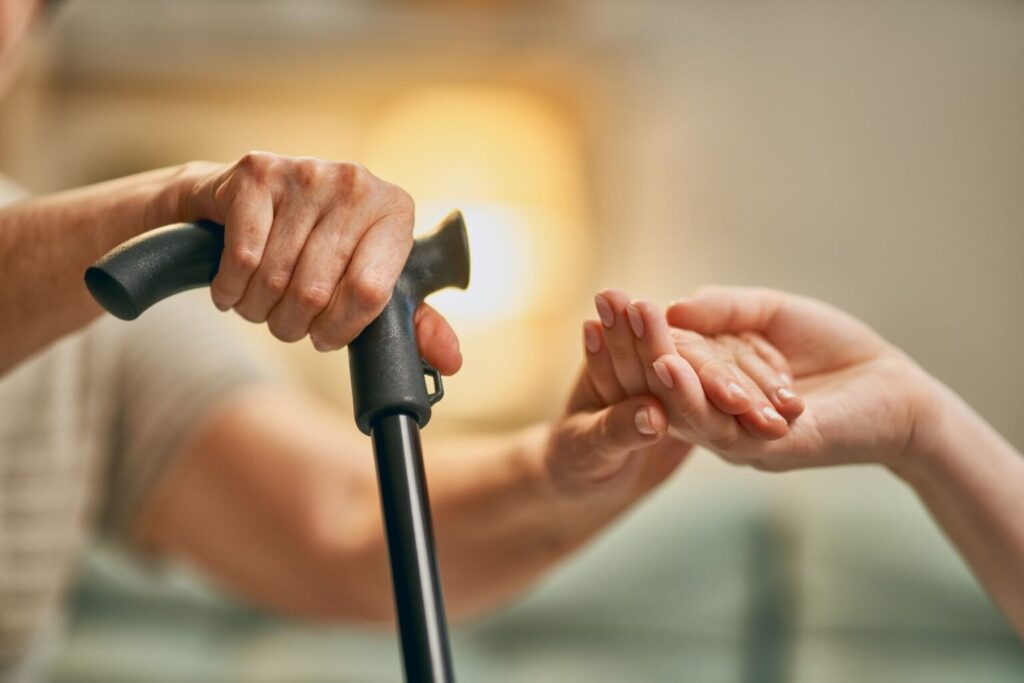What Is Elder Abuse?
Since the Netflix movie, ‘I Care A Lot’ was released, elder abuse has become a hotly debated topic. What is elder abuse, you may ask? Although no one is immune to abuse, the elderly population is especially vulnerable due to declining health and strength. And, it can happen regardless of their location, age, sex, race, orientation, religion, or ethnic or cultural background. On an annual basis, hundreds of thousands of elderly persons are abused. In fact, the U.S. National Institute on Aging states that nearly 1 in 10 adults over age 60 are abused, neglected, or financially exploited. These types of situations are known as elder abuse and knowing is half the battle.
Where Does Elder Abuse Occur?
As mentioned prior, there is no limiting factor that determines where elder abuse can take place. This can include an elderly person’s home, the home of a family member, a doctor’s office, an assisted living facility, retirement community, or a nursing home. Much like the location, the poor treatment of victims has no limit either. The assailant can be a friend, family member, stranger, health care provider, or caregiver.
What Are Signs of Elder Abuse?
In any of the settings mentioned above, you may see signs of abuse or neglect. It is important to pay special attention to the senior person to notice any changes physically, mentally, emotionally or in their environment. Apart from some other specific signs mentioned as you continue reading, give serious consideration if you notice the elder:
- Stops doing activities he or she once enjoyed
- Looks messy, with unwashed hair or dirty clothes
- Is having trouble sleeping
What Is Elder Abuse: The Different Types
Physical Abuse
Seemingly one of the quickest to identify, physical abuse can present itself in many ways making it harder to prove. The signs can be obvious or very obscure, involving injuries such as:
- bruises, scars or welts
- signs of physical restraint
- sprains, fractures, broken bones, or dislocations
- failure to take medication and/or reports of drug overdose
- caregiver to deny others alone time with the elder
- broken eyeglasses or frames
Financial Abuse, Neglect or Exploitation
Due to declining health, eyesight or other ailments, seniors are susceptible to financial mistreatment. This can involve stolen money, overcharging for services, or buying goods and services without consent. It is critical to be vigilant of your loved one’s financial situation and banking accounts to pinpoint any of these occurrences. Catching things early can avoid greater forms of financial exploitation happening later.
Emotional Abuse
This type of abuse is one of the hardest to identify. It’s difficult because emotional abuse does not leave physical evidence, although it can render just as much if not more damage. When a trusted caretaker or family member gives threats, demeaning statements, or controlling behavior, these can be signs of emotional abuse. Another special sign to look out for is when a victim shows signs and behaviors which mimic depression. This includes mumbling and rocking, other strong pointers of emotional abuse.
Neglect or Abandonment
Seniors are quite vulnerable as they get higher in age and/or declining health. Neglect happens when a caregiver fails to respond to things required for the one in need of care. This involves ignoring physical, emotional, and social needs or possibly even withholding food, medicine, or health care. Abandonment is considered to be on the same level of neglect. This is when a caretaker leaves elders in need of help alone without proper means of care. Both cases are quite disheartening and display some telltale clues for spotting. The senior may show signs of:
- weight loss
- malnutrition
- being left unbathed
- Lacks medical aids (glasses, walker, dentures, hearing aid, medications)
- bedsores
- unsanitary living conditions
- not wearing appropriate clothing for the weather
- desertion in public places
Sexual Abuse
There is a link between elder sexual abuse and multiple other forms of elder abuse. Just as disheartening, there has also been ties established by the National Institute of Justice (NIJ) involving older victims with a reduced number of convictions. Another thing to note is that sexual abuse is dangerously progressive with the abuser. It’s important to be highly aware and catch the warning signs early. Symptoms can include:
- bruising or bleeding around or on the genitals
- venereal disease or genital infections
- ripped or blood-stained underwear.
Healthcare Fraud or Abuse
This type of abuse or fraud is also on the rise at an alarming rate and shows abuse doesn’t just occur through caregivers. Healthcare fraud is commonly aimed at seniors through medical providers. Some typical culprits include duplicate billings for medical procedures, inappropriate billing services, waiving of deductibles or co-payments, over- or under-medicating; and evidence of inadequate care.

How To Talk About Elder Abuse?
As unfortunate as it may sound, elder abuse will simply not go away. Someone must take action and step in to incur change for the situation. As to be expected, many elderly individuals feel a great amount of shame and embarrassment regarding their mistreatment. On the other side of the coin, they may be scared to report it out of fear. In this case, they think it will get back to the abuser and make the situation even worse.
Should you believe that someone is being abused in any fashion, talk with him or her if you are able to get them alone. Approach the situation out of courtesy and concern. In most cases, simply stating you think something is wrong and you’re worried can start the conversation. If possible, offer to make arrangements to get help with a local adult protective services agency.
How To Report Elder Abuse?
You should be able to locate help through your city, state, or even national social service agencies. Each of these types are specifically able to help with emotional, legal, and financial abuse. The Administration for Community Living is an excellent resource and has a National Center on Elder Abuse to learn more. You can learn about reporting abuse, locating help, as well as finding state-specific laws that outline abuse and neglect. You can also visit https://ncea.acl.gov/ for more information or reach the Eldercare Locator on most weekdays at 800-677-1116. Though many states require doctors or lawyers report elder abuse, family and friends can be advocates. Do not wait or disregard it, support is available and the culprit could continue the abuse with others.
If you think someone is in immediate danger, call 911 or your local police to get help right away.
 Aubrey Law
Aubrey Law
Our lawyers have been helping clients in Family, Elder, and Probate Law since 1999. Struggling with probate issues, child custody or a recent divorce? If you are seeking legal advice contact the law office of Attorney Aubrey Harry Ducker Jr. Our offices handle all types of legal representation from Family Law to Elder Law. Call us today at 407-307-1491 or send us a send us a message. Aubrey Harry Ducker Jr. Attorney at Law serves Altamonte Springs, Longwood, Maitland, Orlando, Oviedo, Winter Garden, Winter Park and Winter Springs and surrounding areas.

